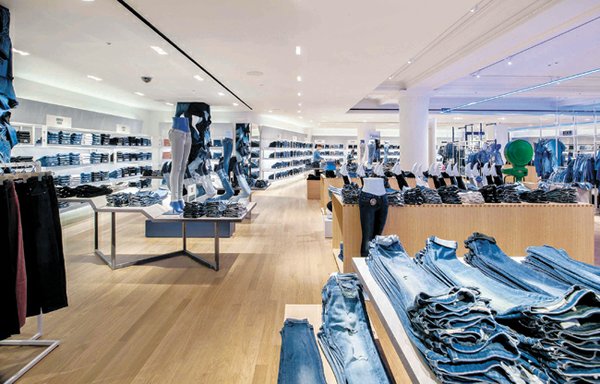IMPORT & EXPORT
2013 Newsmaker: European Union Denim Tariff
At a time when the Obama administration has been trying to boost U.S. exports overseas, Europe this spring put a crimp in the president’s initiative.
On May 1, in a trade war that took an unusual twist, the European Union raised the import tariff on U.S.-made women’s blue jeans from 12 percent to 38 percent. The tax hike was so steep that it was detrimental to apparel exports because U.S. premium-brand denim has been a popular seller on the international market.
The last-minute decision, announced in mid-April and enacted two weeks later on May 1, shocked the Los Angeles apparel industry. While some Los Angeles blue-jeans companies already have been manufacturing in Europe for the EU market, others have prided themselves on their “Made in Los Angeles” label, which carries a lot of cachet in high-end European department stores. The tony Selfridges department store, which has a huge amount of premium denim, is an important buyer of U.S.-made women’s jeans.
The tariff had some U.S. apparel companies considering whether they should leave their Los Angeles factories and move production to Mexico, which has a free-trade agreement with the EU.
This summer, blue-jeans executives from five Los Angeles apparel concerns—including True Religion, Paige Denim, Koral Los Angeles and Hudson Clothing—met with Miami-based trade and customs law firm Sandler, Travis & Rosenberg to figure out a way to get around the tariff.
In December, the law firm won a ruling from the United Kingdom customs and tax department, which maintained that jeans made by Hudson Clothing, which was the sole plaintiff in the tariff complaint, could be classified as women’s cotton trousers because they use dyes that fade and are not colorfast. Women’s cotton trousers are subject to a 12 percent tariff.
The ruling is expected to apply to other U.S. blue-jeans companies and be upheld by the other 27 European Union countries.
One concern is that the European Union now could change the tariff to include women’s cotton pants to make sure the higher tariff covers U.S.-made blue jeans.
The tariff hike was authorized by the World Trade Organization in retaliation for U.S. failure to fully comply with a ruling against the Continued Dumping and Subsidy Offset Act of 2000.
Known as the Byrd Amendment, this law allowed American companies that complained about unfairly traded goods to receive payment from the additional duties collected by the U.S.
The law was found to be a violation of WTO rules, and, despite a repeal, its effects were allowed to continue. As a result, the WTO allows Europe to raise tariffs on goods imported from the U.S., up to a certain amount.






















